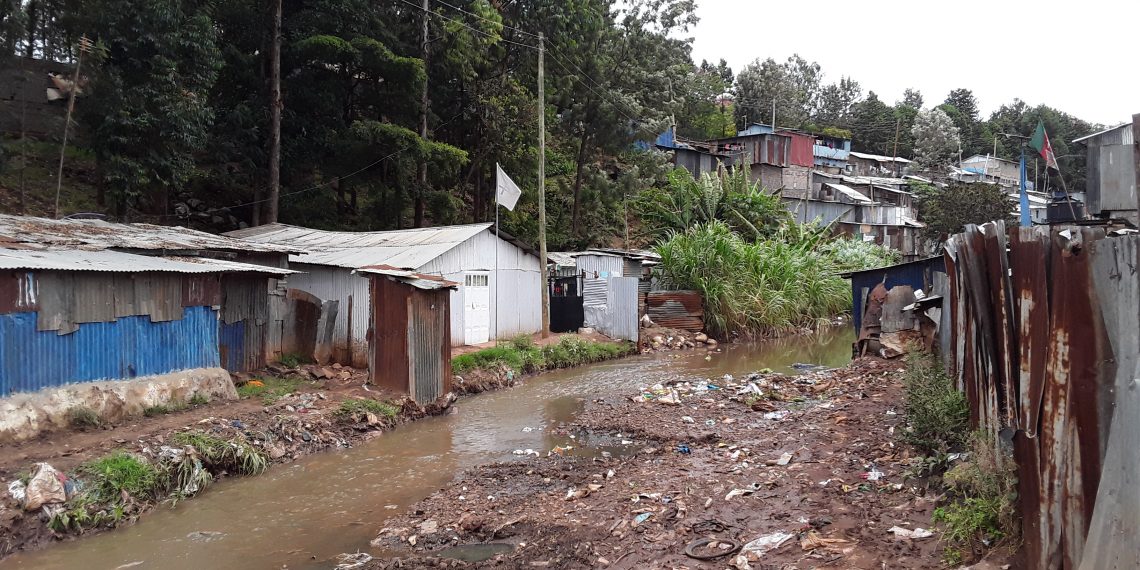By Joyce Chimbi
There was a time in recent history when plastic bags were a central part of life in Kenya. More than 24 million plastic bags were used and discarded every month in this East African nation. Plastic waste was a part and parcel of the country’s ecosystem. An eyesore to be found everywhere you looked – by the road side, in garbage foods and alarmingly, plastic found its way into the food chain.
This was confirmed by various studies including a 2017 government study that raised alarm that plastic waste was entering the food chain as at least 50 percent of livestock in peri-urban areas had ingested plastics – revealing that a catastrophic health crisis was in the making.
In a ground breaking move in 2017, Bor Mamo, Director General of Kenya’s National Environment Management Authority (NEMA) said that the government banned single use plastic bags. The ban came with very severe penalties of fines between $20,000 and $40,000 and or one to four years in prison for noncompliance. To date, Kenya’s ban is one of the world’s strictest and most efficient.
Speaking to journalist during a conference to unpack the state of Africa’s environment organized by the by the Centre for Science and Environment (CSE), the India-based think tank, in association with Media for Environment, Science, Health and Agriculture (MESHA-Kenya) 11-13 October 2023, he said that “more than 100 million plastic bags were used annually in Kenyan supermarkets alone.”
Plastic production is harmful to human health and contributes significantly to greenhouse gas emissions. Research finds that more than 170 fracking chemicals used to produce the main feedstocks for plastic have known human health impacts such as cancer, neurological, development toxicity, reproductive and impairment of the immune system.
Siddharth Ghanshyam Singh from CSE spoke about plastic pollution and the urgent need to find lasting solutions to a crisis that impacts of aspects of life on planet Earth and particularly human health. As such, solutions are multi-pronged and include “education in the production of primary plastic, elimination of polymers and chemicals of concern as well as elimination of problematic, avoidable, and short-lived plastics.”
Further highlighting the need for “transparency measures including labelling mechanisms, a just transition from plastic use as well as targets for reduction and reuse of plastic. Challenges towards addressing plastic pollution include poor enforcement of existing laws, a lack of policies dedicated to plastic waste management, a lack of infrastructure and funds and, a lack of accountability from businesses.”
Kenya has made significant strides in these areas and is a potential benchmarking site for other developing countries on how to curb the plastic menace. The Kenya Plastics Pact (KPP), an ambitious, multisectoral collaborative initiative to address plastic waste and eliminate plastic pollution, recently released the Design Guidelines for Recyclability in Kenya to ensure that 100 percent of plastic packaging is reusable or recyclable by 2030.
The guidelines were signed and endorsed by key stakeholders such as the plastic packaging manufacturers and prominent Fast-moving consumer goods (FMCG) brands. They were also endorsed by committed small and medium businesses, informal waste pickers’ associations and recyclers, influential industry associations, environmental NGOs, advocacy groups and civil society and, the Ministry of Environment and Forestry.
First of their kind, the guidelines are centered on addressing plastic waste and pollution at the source. Rethinking how plastic packaging can be designed, used and reused in a more circular manner, as opposed to the linear business-as-usual system of take-make-waste plastic.
Addressing plastic pollution is critical to all life on earth. Unmitigated, studies warn that there could be more plastics than fish in the Indian Ocean by 2025 where more than 1,300 billion pieces of plastic find their way annually.
Mamo said that the country is vigilant and has accelerated measures to address plastic pollution by ensuring that plastic traders do not use the porous East African community borders to re-introduce banned plastic into the country.
UN Member States similarly shown a commitment to address the plastic pollution crisis when they agreed to start negotiating a new global treaty in 2022 to end plastic pollution in a historic move to protect wildlife, environment and humans from severe, harmful effects of plastic pollution.















